
Jazzmatazz, Volume 1: An Experimental Fusion of Hip-Hop and Jazz, is the debut solo studio album by American hip hop recording artist Guru. It was released on May 18, 1993, by Chrysalis Records. Recording sessions took place at D&D Studios in New York. Production was handled by Guru himself, who also served as executive producer together with Duff Marlowe and Patrick Moxey.

Watch Out! is a 1987 album released by R&B singer Patrice Rushen. This album was the only album Rushen released with Arista Records after leaving Elektra Records. The album produced several R&B hits for Rushen.
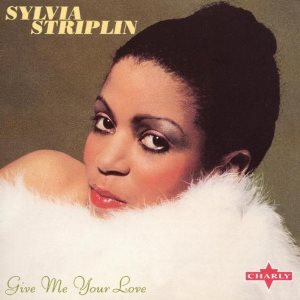
Give Me Your Love is the debut and only released album of singer Sylvia Striplin.

Everybody Loves the Sunshine is a studio album by Roy Ayers released under the Roy Ayers Ubiquity umbrella. It was released through Polydor Records in 1976. It peaked at number 51 on the Billboard 200 chart. In 2016, Pitchfork placed the title track at number 72 on the "200 Best Songs of the 1970s" list.

The Sweetest Days is the third studio album by American singer Vanessa Williams, released on December 6, 1994, by Wing Records and Mercury Records. The album peaked at number 57 on the US Billboard 200 and at number 25 on the Top R&B/Hip-Hop Albums chart, and has been certified platinum by the Recording Industry Association of America (RIAA).
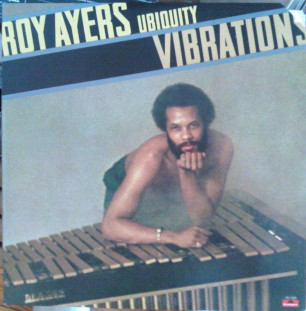
Vibrations is a Roy Ayers album released under the Roy Ayers Ubiquity umbrella. It was released in 1976 on Polydor Records.
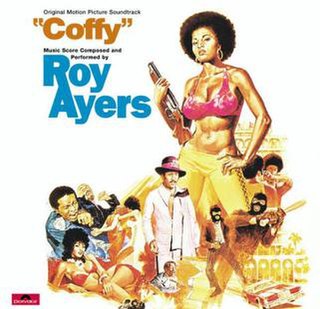
Coffy is a soundtrack produced, composed, and arranged by Roy Ayers for the blaxploitation film Coffy. It was released in 1973 on Polydor Records and peaked at number 31 on the jazz albums chart.

Motown is the sixth studio album by American singer-songwriter Michael McDonald. The album was released on June 24, 2003, by Universal Music International and Motown.

Motown Two is the seventh studio album by American singer-songwriter Michael McDonald. The album was released on October 26, 2004, by Universal Music International and Motown.

Bad for Me is the fourth studio album by American jazz singer Dee Dee Bridgewater, released in 1979 by Elektra Records. The album reached at No. 29 on the Cashbox Top Jazz Albums chart and No. 30 on the Billboard Jazz Albums chart.
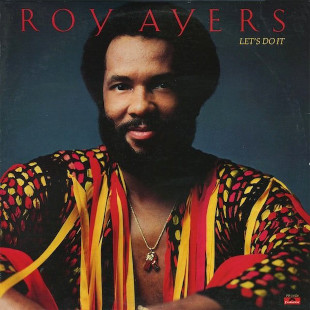
Let's Do It is a studio album by American musician Roy Ayers. It was released in 1978 through Polydor Records. Recording sessions for the album took place at Sigma Sound Studios and Electric Lady Studios in New York City, and at Record Plant in Los Angeles. Production was handled by Ayers himself with co-production by William Allen. The album features contributions from Merry Clayton, Sylvia Cox and Debbie Burrell on vocals, Harry Whitaker, Armen Donelian and Philip Woo on piano, Greg Moore on guitar, Kerry Turman on bass, Bernard Purdie on drums, Chano O'Ferral on congas, Justo Almario on saxophone, and John Mosley on trumpet.
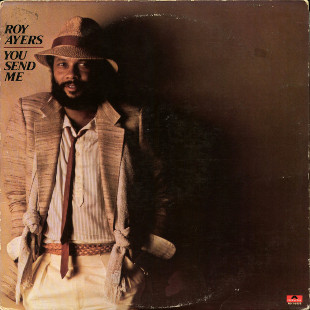
You Send Me is a studio album by American musician Roy Ayers. It was released in 1978 through Polydor Records. Recording sessions for the album took place at Sigma Sound Studios and Electric Lady Studios in New York City. Production was handled by Roy Ayers and Carla Vaughn. The album features contributions from vocalists Carla Vaughn and Merry Clayton, keyboardists Philip Woo and Harry Whitaker, guitarists Chuck Anthony and James Mason, bassists William Allen and Kerry Turman, drummers Bernard Purdie, José Ortiz, Dennis Davis, Howard King and Steve Cobb, percussionist Chano O'Ferral, saxophonist Justo Almario, and trumpeter John Mosley, with guest appearances from Bruce Fisher and Stan Richardson on lead vocals, Ethel Beatty and Tony Gooden on backing vocals, and strings contractor Kermit Moore.

Mystic Voyage is a studio album by Roy Ayers Ubiquity. It was released in 1975 through Polydor Records. Recording sessions for the album took place at Kaye-Smith/Van Ackeren Studios in Seattle, Washington and at Electric Lady Studios in New York City. This album is dedicated to the memory of Julian "Cannonball" Adderley.

Fever is a studio album by American musician Roy Ayers. It was released in 1979 through Polydor Records. Recording sessions for the album took place at Sigma Sound Studios and Electric Lady Studios in New York City, and at Record Plant in Los Angeles. The production was handled by Ayers himself with co-production by Carla Vaughn.

Love Fantasy is a studio album by American musician Roy Ayers. It was released in 1980 through Polydor Records. Recording sessions for the album took place at Electric Lady Studios and Sigma Sound Studios in New York City.

Africa, Center of the World is a studio album by American musician Roy Ayers. It was released in 1981 through Polydor Records. Recording sessions for the album took place at Artisian Sound Recording Studio in Hollywood, California and Sigma Sound Studios in New York City. The album is dedicated to Fela Kuti and Bob Marley.

Change Up the Groove is a studio album by Roy Ayers Ubiquity. It was released in 1974 through Polydor Records. Recording sessions for the album took place at Electric Lady Studios in New York City. The album peaked at number 156 on the Billboard 200 albums chart.
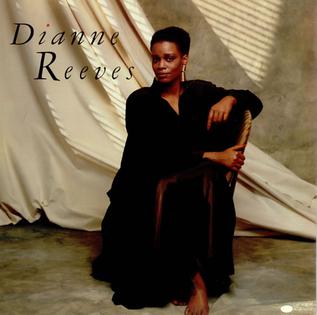
Dianne Reeves is a studio album by American jazz singer Dianne Reeves issued in 1987 on Blue Note Records. The album peaked at number 1 on the US Billboard Contemporary Jazz Albums chart and at number 28 on the US Billboard Top R&B/Hip-Hop Albums chart.
Wayne K. Garfield was an American composer, collaborating songwriter, vocalist, social entrepreneur, community activist, and producer, who was born in 1952 in New York City. He co-founded of the music collective Change, which launched the career of Luther Vandross with the hit song "The Glow of Love" which became #1 on the Billboard Dance/Disco Chart in the summer of 1980.In addition, Garfield’s songs appear on Platinum-Plus recordings by Luther Vandross, J. Cole, Now! 7, and Janet Jackson. Garfield was an active participant in the National Basketball Association (NBA), and internationally as a player representative. Among his successful clients were NBA Summer League standout, Chedney Gray and Jimmy Baxter, who in 2006 was the recipient of the France basketball league’s Sixth Man of the Year and Newcomer of the Year.

Positive is a studio album by the American singer Peabo Bryson, released in January 1988 by Elektra Records. The album peaked at number 157 on the US Billboard 200 and number 42 on the Billboard R&B albums chart. It was the last album Bryson recorded for Elektra before he briefly returned to Capitol Records. Positive was supported by the single "Without You", which was also the theme song to Leonard Part 6.



















